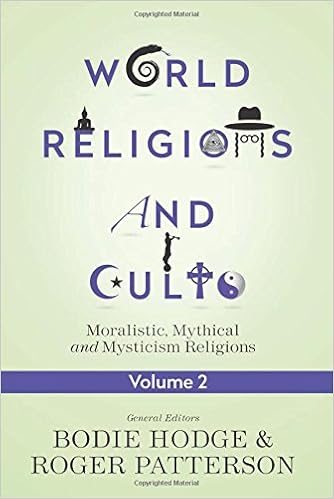Unitarianism
Definition
Unitarianism refers to any philosophy which claims that divine sovereignty is not shared in any way.
Keywords: Unitarianism, Philosophy, God, Irrational, False, Contradictory, Reality, Deductive, Universe, Time, Argument From Reason.
Veracity
Unitarian claims are false .
Proof
Simplified
Any worldview that denies an omniscient, sovereign, rational author of time and the universe allows for no possible rational justification for the assumption that reality is non-contradictory.
Premise 1: A rational, sovereign, omniscient author of time and the universe will, of necessity, eternally conceive of himself as his own ultimate reason for everything that occurs. The conception of himself will eternally be the exact representation of himself, sharing divine sovereignty, since this conception is the reason for everything that occurs.
Premise 2: Under unitarianism, divine sovereignty is not shared.
Conclusion: Therefore, under unitarianism, either there is no author of time and the universe; or else the author of time and the universe is not omniscient; or else the author of time and the universe is not sovereign; or else the author of time and the universe is not rational.
Humans assume that reality is non-contradictory. Under unitarianism, there can ultimately be no rational authority behind this assumption, making it an irrational assumption. This makes unitarianism deductively false.
In depth
Any worldview that denies an omniscient, sovereign, rational author of time and the universe allows for no possible rational justification for the assumption that reality is non-contradictory.
A. All things formed must be formed by reasoning causes for our beliefs about them to be rational.
Premise 1: Any belief formed by non-reasoning causes is believed without reason.
Premise 2: A belief about anything is caused in part by the existence of that thing.
Conclusion: Therefore, any belief about anything is believed without reason unless the existence of that thing is not formed by non-reasoning causes.
B. All things formed must ultimately be formed by only one reasoning cause for our beliefs about them to be rational.
Premise 1: In the convergence of multiple causes, the result is at least partly the result of the convergence of causes.
Premise 2: The convergence of multiple causes is not itself reasoning.
Conclusion: Therefore, any belief formed by the convergence of multiple ultimate causes is believed without reason.
C. God conceives of himself as his own reason.
Premise 1: If all things formed are formed by one reasoning cause (from B above), it itself is the only reason for them.
Premise 2: Anything that reasons, and has only one reason, conceives of that reason.
Conclusion: Therefore, if all things formed are formed by one reasoning cause, it conceives of it itself as the reason for them.
D. Divinity is shared in any rational god.
Premise 1: With a rational god, god's reason is god himself.
Premise 2: There is a distinction between the concept and the thing conceived of.
Conclusion: Therefore, with a rational god, divinity is shared between the concept and the thing conceived of.
Humans assume that reality is non-contradictory. Under unitarianism, there can ultimately be no rational authority behind this assumption, making it an irrational assumption.
This Argument from Reason demonstrates that unitarianism is deductively false.

Gilbert Guttlebocker, Defender of Dragons
Riveting, yet absurd; romantic, yet innocent; Gilbert Guttlebocker, Defender of Dragons is a little Roald Dahl, a little Harry Potter, and a little Chronicles of Narnia, all rolled into one. Timothy McCabe collaborates with the great Benedict Ballyhoot to bring you the novel of the century!

In Printed Form
Along with numerous other authors including Don Landis, Bodie Hodge and Roger Patterson, Timothy McCabe contributes analyses of various world religions and cults in this volume from Master Books.
Other Writings
"Apologeticspress.org and CARM.org disagree on whether baptism is needed for salvation. Both are Christian and both quote the Bible in support. Who is right and why?"
Water baptism is not a prerequisite for salvation. The apostle Paul, writing in the Book of Romans, chapter 4, focusing in on verses 9-10, provides an argument that the process of physical circumcision, the cutting off of the male foreskin, a practice commanded under the law of Moses, is not necessary to be made acceptable to God. While circumcision and baptism are not to be equated, the argument Paul makes is applicable to both. His argument can be presented as follows: P1.
Continue reading...
"Why does God require an argument to defend it, unlike something obvious like gravity for example?"
According to the Bible, God does not require an argument to prove His existence to anyone; rather, everyone is inherently already well aware of His existence, because He has made us aware. Romans 1, verses 18-20 state, "For the wrath of God is revealed from heaven against all ungodliness and unrighteousness of men who suppress the truth in unrighteousness, because that which is known about God is evident within them; for God made it evident to them.
Continue reading...
"What unique evidence is there for your religion or worldview? Can you prove that what you say is true?"
In the words of the late Greg Bahnsen, the most basic proof of Christianity is that if it were not true, it would be impossible to prove anything at all. If the non-Christian worldview is true, the laws of logic are not valid. Therefore, even though non-Christians use logic to interpret evidence, they have no real justification for doing so. In the non-Christian worldview, logic is not something that can be trusted.
Continue reading...